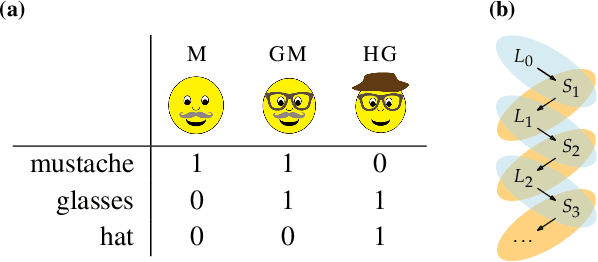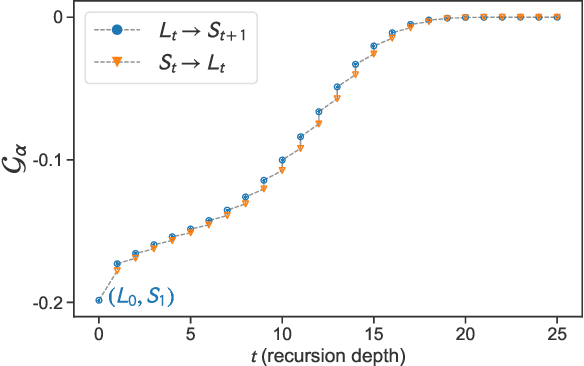A Rate-Distortion view of human pragmatic reasoning
Paper and Code
May 13, 2020



What computational principles underlie human pragmatic reasoning? A prominent approach to pragmatics is the Rational Speech Act (RSA) framework, which formulates pragmatic reasoning as probabilistic speakers and listeners recursively reasoning about each other. While RSA enjoys broad empirical support, it is not yet clear whether the dynamics of such recursive reasoning may be governed by a general optimization principle. Here, we present a novel analysis of the RSA framework that addresses this question. First, we show that RSA recursion implements an alternating maximization for optimizing a tradeoff between expected utility and communicative effort. On that basis, we study the dynamics of RSA recursion and disconfirm the conjecture that expected utility is guaranteed to improve with recursion depth. Second, we show that RSA can be grounded in Rate-Distortion theory, while maintaining a similar ability to account for human behavior and avoiding a bias of RSA toward random utterance production. This work furthers the mathematical understanding of RSA models, and suggests that general information-theoretic principles may give rise to human pragmatic reasoning.
 Add to Chrome
Add to Chrome Add to Firefox
Add to Firefox Add to Edge
Add to Edge